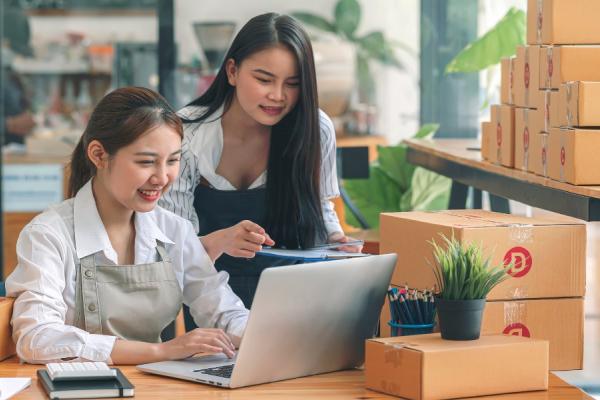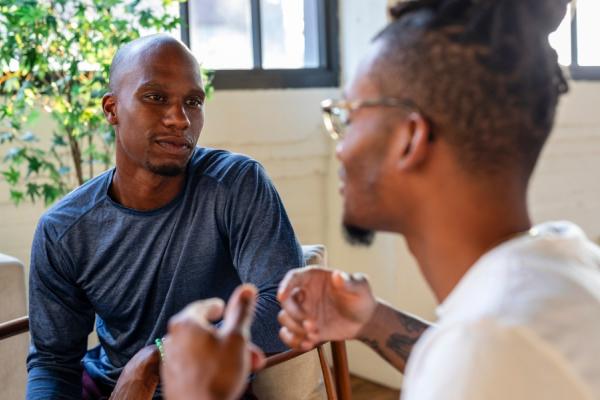
Coping with anxiety, worry and stress while coronavirus COVID-19 affects us all
While the situation with coronovirus COVID-19 keeps changing, many of us can feel worried or anxious about how it will affect us. It can also be stressful to cope with finances, family and the restrictions of self isolation.
We are all affected by the current situation and you are not alone in feeling anxious or stressed about what will happen in the next few weeks. You can contact Able Futures if you are employed, self-employed or an apprentice, including if you have been furloughed, to arrange time to talk to a mental health professional who can help you cope and feel better.
Coronavirus and anxiety
As we all come to terms with how COVID-19 is affecting us, you may experiencing some anxious thoughts and feelings. The typical symptoms of anxiety are often described as prolonged bouts of worry, feeling constantly nervous, being restless and on edge. Feelings of anxiety can cause us to experience physical and mental symptoms like nausea and a fluttering feeling in the stomach, a thumping heartbeat, having a sense of dread and worrying that gets out of proportion.
Coping with feelings of anxiety during the coronavirus changes can feel challenging when you are not able to do the things you normally do to help yourself feel better. But may you could try some of these alternatives
Escapism
- Get away from your desk and go outside for a walk. Escape your anxious thoughts by noticing 5 things you can see, 4 things you can touch, 3 things you can hear, 2 things you can smell and 1 thing you can taste.
- Take time for yourself. Escape from caring for other people in your household and practice some self-care. Have a bubble bath or make a hot milky drink and listen to some of your favourite podcast.
- Escape into some research for things you can do to prepare for a positive life after this period of isolation ends. Can you grow some fruit or vegetables in your outside space? Buy some seeds and get things germinating in pots made from recycled toilet roll tubes or yoghurt pots on your window sills. Want to go to explore some parts of your town or countryside that you've not been able to visit for some time? Research how you could travel there in a different way to how you'd have got there before coronavirus, and that can make your future experience more special.
Distraction
- Breathing patterns can contribute to feelings of anxiety and panic, so try a 4-7-8 relaxing breathing exercise to take your focus away from your anxious thoughts and focus on giving yourself the air and attention you deserve. Count to four as your breathe inhale through your nose. Hold your breath for a count of seven. Exhale through your mouth to a count of eight. Repeat the cycle three more times.
- Practicing creativity is a positive way to distract yourself. Check out the YouTube Stay At Home spotlight for thousands of ideas about things that you could cook, craft, read, learn, clean or more to help you pass the time. On Twitter and Instagram there are lots of 30 day challenges which you can get involved with to give yourself something creative to focus on every day for 30 days. How about the 30 day photo challenge to take and share a pic based on a new topic each day? Or else share on Twitter your answers to a 30 day music challenge: which song best represents a certain topic? There also 30 day LEGO challenges, drawing challenges, and many more that could be right for you.
- Try calling someone you trust. A friend or a peer, someone from Able Futures, or a helpline from the Samaritans or Anxiety UK can all give you someone to talk to as a distraction from what you are feeling.
- Keep a diary where you note what happens when feeling anxious. What happens to your breathing? What thoughts are in your mind? Are you aware of something that triggered you to feel a particular way? Rate your anxiety level and its physical effects. Take time to reflect and write a more balanced account of what actually happened.
Routine
- Eat regularly to balance your blood sugar levels.
- Drink enough water.
- Stick to a bedtime routine to maintain good sleeping patterns.
- Ensure that you get some daily movement and exercise to help your body feel stronger and more able to cope when something triggers your anxiety. You can still go out once a day for exercise, but remember to follow the rules on social distancing.
- Access news and information on coronavirus just once a day. Find a credible source you can trust – such as GOV.UK or the NHS website – and fact-check information you get from newsfeeds, social media or other people. Try setting yourself a specific time to read updates on the outbreak or limit yourself to a couple of checks a day.
Able Futures could help you cope while the situation continues to evolve and we have to take actions to change the way we live our lives to protect our safety and those around us.
Able Futures is here to listen and if you apply for support and advice from us, we could give you someone to talk to over the next few months so you can get advice and guidance from a mental health specialist who can recommend things you could try to keep taking care of yourself while you may be feeling more anxious or worried.

At the start of 2021, it may be that you are feeling the effects of stress more than ever.
Issues such as finances and looking after your family or friends while continuing to live and work in new ways during the Covid-19 pandemic may be increasing your stress levels, and it is understandable if you are finding it hard to cope.
Practicing some of the escapism, distraction and routine techniques outlined above may help you relax, refocus and feel better if a period of high stress is affecting your at the moment.
You may also want to seek help for particular issues such as debt or relationship issues or talk to Able Futures about ways we can give you advice and support at this difficult time.



